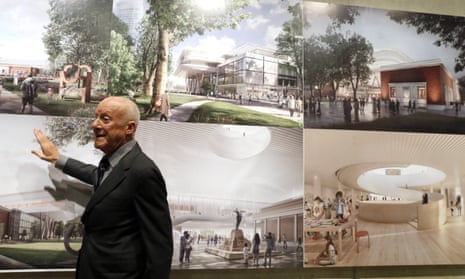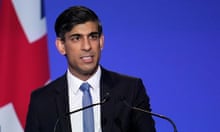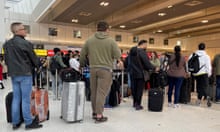The architecture practice run by Sir Norman Foster almost doubled its profits as it expanded in the Middle East and gained new business despite pandemic lockdowns.
Total revenues fell by £33m to £200m in the year ending 30 April 2021, accounts for Foster + Partners, the practice’s main trading company, show. But profits before tax almost doubled to £36.2m during the year, compared with £19.8m in the previous year.
At the start of the pandemic Foster + Partners braced for a severe financial hit. The company furloughed about 70 staff at the start of lockdown in March 2020 because they were unable to work from home.
However, the accounts show the firm had “remarkable financial resilience” and said it had gained new projects throughout various global lockdowns. The company later said it had repaid in full about £500,000 in furlough money once it was clear there was no financial peril.
The practice, one of the largest in the world with 1,200 employees, completed 13 projects during the financial year, including a brain research institute in Jerusalem, a library in the Sharjah emirate, and a new headquarters for golf’s PGA Tour in Florida.
In the latest financial year the firm has had plans rejected for the Tulip, a controversial tower planned in central London, and a Manhattan penthouse apartment for the billionaire hedge fund manager Bill Ackman.
The Middle East is the practice’s biggest region, where it has four branches. The accounts highlighted three joint ventures in the region working on the Sheikh Zayed National Museum in Abu Dhabi, Kuwait international airport, and a new city in Kuwait for 280,000 people named after the country’s emir, Sheikh Sabah al-Ahmad. The Kuwaiti city is one of several it is working on across the Middle East and China.
Foster + Partners made a £8.8m payment to 180 of its senior employee “partners” on top of their salaries. However, total pay for the 10 directors fell from £20.3m to £12.3m. Pay for the highest-paid director, thought to be Lord Foster, fell from £2.3m to £1.4m.
The bumper profits were higher than in 2019, before the pandemic struck. The company highlighted falling costs because of limits on business travel and “the enforced remote working regime”, which affected everyone except some model makers and printers.
However, the firm indicated that it was keen to return to normal business travel, citing an “unquantifiable extent” of lost new business as well as educating younger colleagues in international architecture. “The practice will undeniably benefit from the resumption of travel,” it said.
The company declined to comment further.










